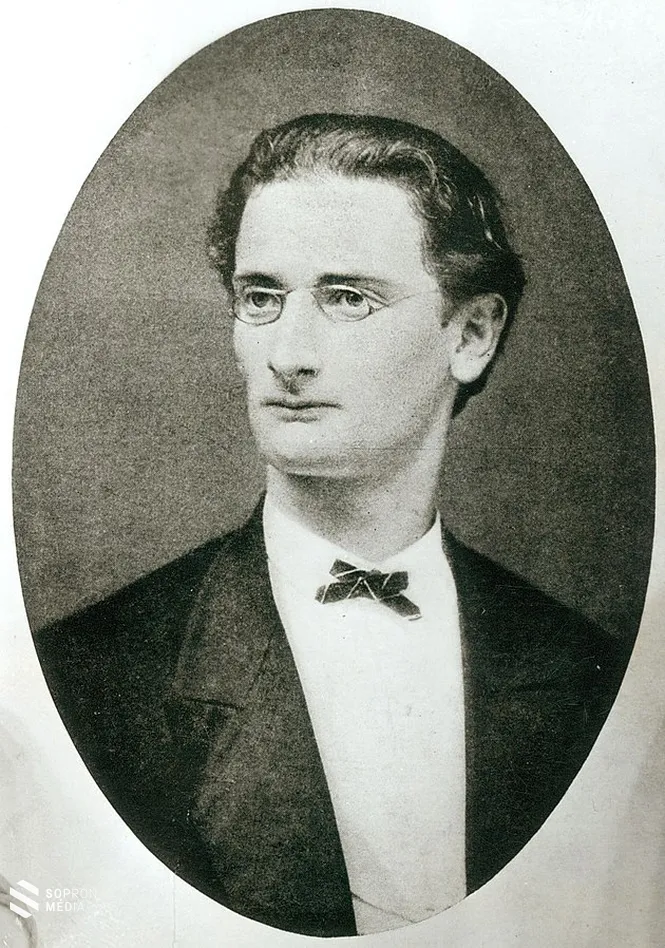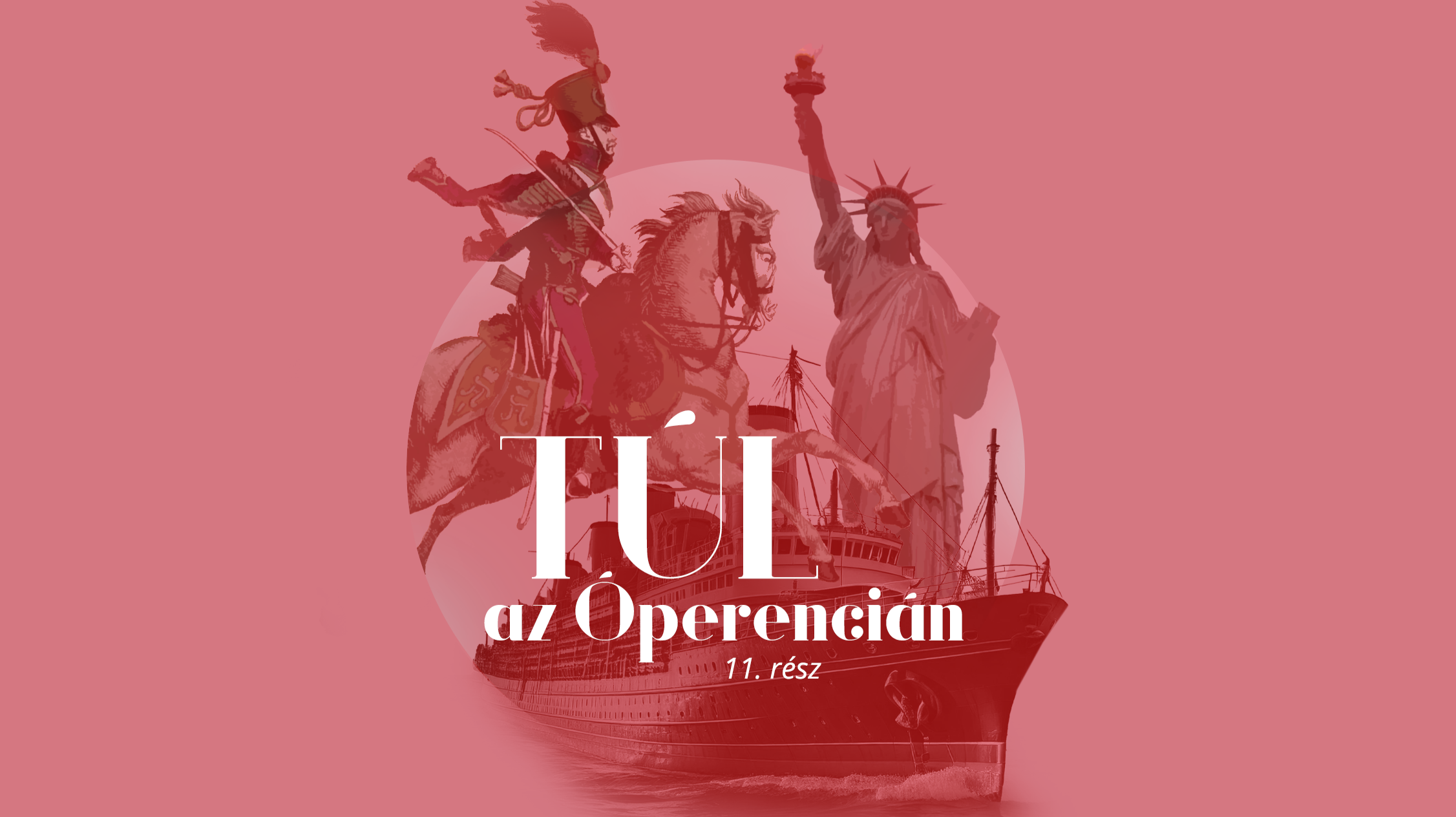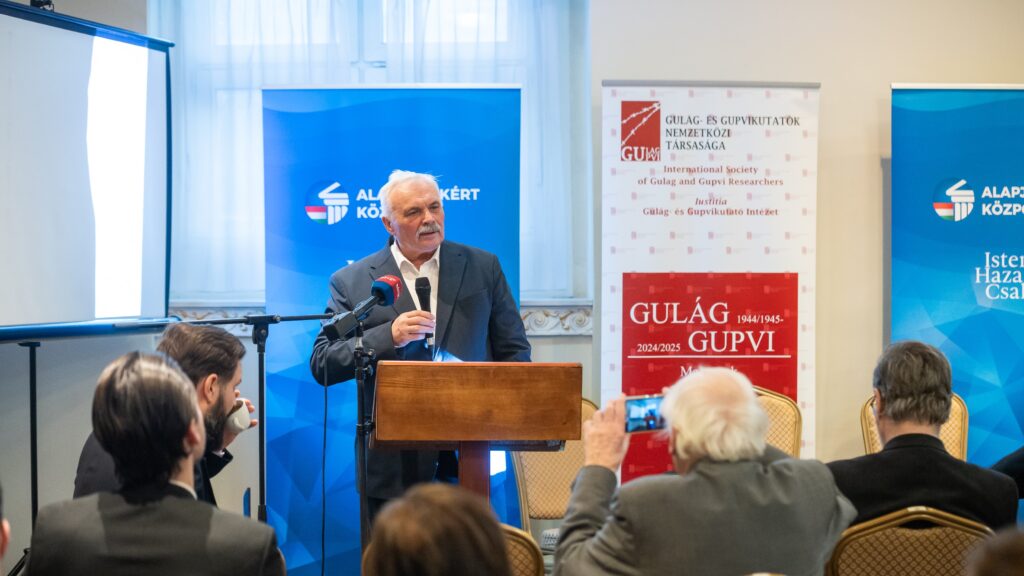The following is an adapted version of an article written by Lázár Pap, originally published in Hungarian in Magyar Krónika.
America—the new world, the land of opportunity, the land of the free. In the 19th and 20th centuries, hundreds of thousands of Hungarians left their former lives behind to cross the Atlantic and try their luck Far Far Away, that is, ‘Beyond the Óperencia’, as Hungarian fairy tales go. In its series, Magyar Krónika looks at the meeting points of America and Hungary through the Hungarian diaspora living in the US. This part will look at the life of Joseph Pulitzer, who originally left for Mexico to become a soldier but ended up staying in America and becoming a journalist.
As a Hungarian immigrant, Joseph Pulitzer realized the American dream—and even took it to the top. In his case, we can take the word ‘top’ quite literally: at the zenith of his career, he ran his press empire from the top of a skyscraper. But let’s not get ahead of ourselves just yet.
Family Background
Joseph Pulitzer was born on 10 April 1847, in Makó. His father was a merchant of Moravian origin, and his mother was a descendant of a Hungarian Jewish family. Born as the fourth child, Joseph received an excellent education. His father’s business provided the family with a secure financial background for a long time. However, the family head’s health deteriorated over time, and he died of tuberculosis, while their business went bankrupt.
At the time, our hero was attending a commercial school, but following in the footsteps of his maternal uncle, he dreamed of a military career. His father’s brothers were also passionate about this, and two of them served as national guards during the 1848 Revolution. In 1864 he had the opportunity to try his luck, following his adventurous nature. Maximilian of Habsburg set out with French help to claim the Mexican throne. His uncle joined the expedition, and Joseph wanted to do the same, but his application was rejected due to his poor physical condition. This, however, did not discourage him, and he set off overseas to join the army there.
Emigration to the United States
He eventually set off from Hamburg for the New World but got stuck in New York because he ran out of money. The United States was not exactly experiencing a peaceful period either, with the Civil War still raging between the North and the South. Pulitzer was found by Union recruiters and joined the 1st New York Cavalry Regiment. The regiment was formed by Carl Schurz, a veteran of the German revolutions. As a result, it was mainly German soldiers who served there, although there were also a few Hungarians.
We do not know whether the young immigrant took part in actual combat, but we do know that his regiment participated in the Shenandoah Valley campaigns in 1864 and was then stationed in Virginia. He served for eight months and was then discharged. The then still only 18-year-old Pulitzer received his last paycheck in New York. He stood there with 13 dollars in his pocket and had to decide what to do next. He did not speak the language, had no work experience, and his limited opportunities were further hampered by the fact that crowds of other discharged soldiers were also looking for work at the time.

For a long time, he only had temporary jobs and slept outdoors. Finally, he did what others in similar circumstances did: he headed west. In St Louis, he found it easier to get by among the Germans who had settled there, as he at least knew the language. At first, he could not find a reliable source of income there either, but he went to the library, learned the language, and played chess regularly in a pub. There, two lawyers noticed the young man’s talent, took him under their wing, and provided him with a livelihood. With their support, he began his legal studies. Additionally, he continued to try his hand at various odd jobs. Once he signed up to work on a sugar plantation, but he was deceived; the boat transporting the workers dropped them off, so they were forced to return to St Louis on foot. Outraged, he wrote the story to the Westliche Post newspaper, which published his article. The editorial staff liked the writing so much that they allowed him to publish regularly. As fate would have it, one of the newspaper’s leading staff members was Carl Schurz, who had formed the 1st New York Infantry Regiment back in the day, where Pulitzer also served, and who later became his role model as a politician and journalist.
Meanwhile, he completed his law studies and obtained American citizenship as well. He started his own notary office, but his business ran aground. Pulitzer was not left without a livelihood, however, as the Westliche Post offered him a job as a reporter, which he accepted.
‘[Pulitzer] became an independent editor…the $30,000 he earned at that time became the basis of his later fabulous fortune’
Alongside Carl Schurz, he mastered the ins and outs of so-called reform journalism. Through his role model, he gained insight into the world of politics, too, and even became part of it. Within the Republican Party, a reformist movement was formed under the leadership of Schurz, among others, aiming to eliminate the corruption that accompanied the presidency of Ulysses S Grant. However, their efforts were unsuccessful; Grant was re-elected as president, and they were unable to change the balance of power within the party as well.
The Westliche Post also saw these events as a failure, and their readership declined. In light of this, the management sold part of the newspaper’s ownership at a low price. By that time, Pulitzer already had enough capital to take advantage of this opportunity.
He then became an independent editor, which led to the repurchase of his ownership stake—the $30,000 he earned at that time became the basis of his later fabulous fortune.
Pulitzer, the Publisher
After this, Pulitzer did not stay at the Westliche Post but transferred to Charles Dana’s newspaper, The Sun, where he became the Washington reporter. In the meantime, he got married, taking Kate Davis, a relative of the late Confederate President Jefferson Davis, as his wife. After their tour of Europe, they returned to St Louis, and Pulitzer decided to buy his own newspaper. By merging the Evening Post and the Evening Dispatch, he created his own newspaper, the St Louis Post-Dispatch.
‘[His newspaper] took up the cause of public service and began to flourish in a completely unconventional way’
In his first editorial, he stated that his newspaper ‘will serve no party, but the people; it will not be the mouthpiece of “Republicanism”, but of truth;…it will not support the government, but will criticize it; it will oppose all fraud and deception, whatever and wherever it may be; it will support principles and ideas rather than prejudices and partisanship.’ It took up the cause of public service and began to flourish in a completely unconventional way.
The articles in the St Louis Post-Dispatch sought to mobilize readers and arouse interest. To this end, it launched so-called press campaigns much more frequently than other publications of the time. Nevertheless, it remained informative, drawing only from the most reliable news sources. On important occasions, it took a stand in editorial articles that appeared on the editorial page.
Its style, quality, and circulation figures quickly set it apart from the rest of the rural press.
Pulitzer’s financial resources enabled him to purchase the daily newspaper The New York World, which was in very poor condition, from the well-known entrepreneur Jay Gould. The New York press market dictated a relentless pace. Aware of this, Pulitzer took the best editors of the St Louis Post-Dispatch with him to New York. His goals remained unchanged:
‘In this large and growing city, there is a place for a newspaper that is not only cheap but also of high quality, not only extensive, but truly democratic, intended for the people rather than the moneyed aristocracy, and which considers the news of the New World to be more important than that of the Old World; which exposes all fraud and disgrace, fights against the faults and abuses of public life, and fights for the people with determined sincerity. To this end, and for this purpose alone, I call the attention of the intelligent public to the New World,’ he wrote in his first editorial at the helm of The New York World.
Thus, the once Hungarian immigrant became an American press magnate who later had an extraordinary influence not only on the world of journalism but also on the domestic and foreign policy of the United States.
You can read about Joseph Pulitzer’s further adventures in Part II.
This article is based on András Csillag’s work titled Joseph Pulitzer and the American Press.
Read the previous parts of the series below:
Click here to read the original article.







